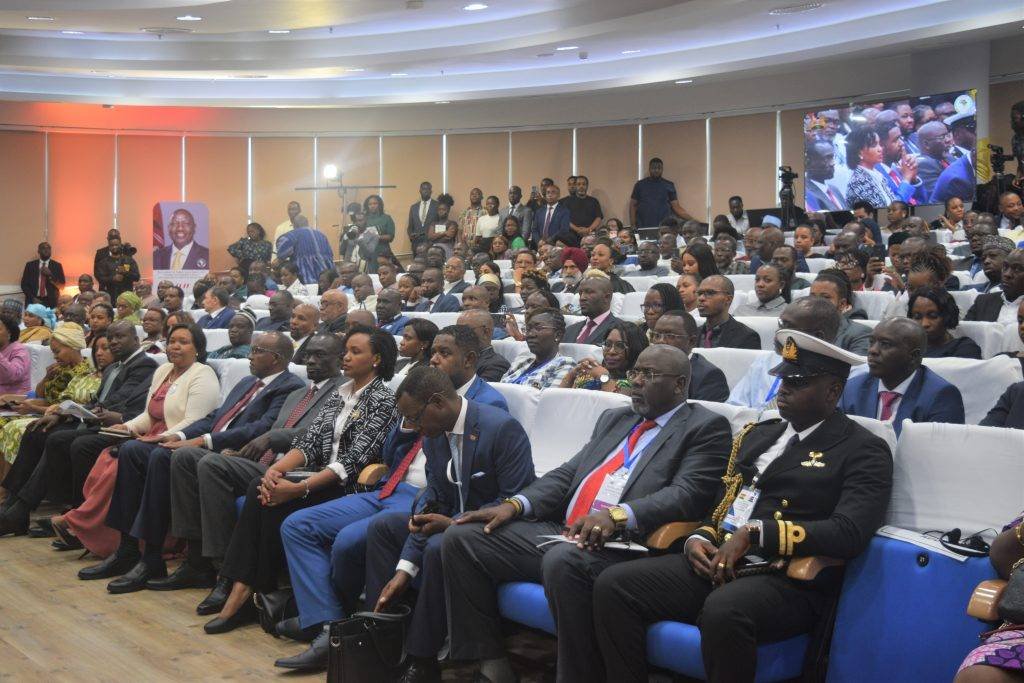
The digital transformation sweeping across Africa has unlocked unprecedented opportunities for economic growth and social development.
However, this rapid digitalization also exposes the continent’s critical infrastructure and burgeoning digital economy to a growing and increasingly sophisticated array of cyber threats.
While individual cybersecurity measures are important, the transnational nature of cybercrime necessitates a more holistic, continent-wide strategy focused on cyber resilience. This article moves beyond a discussion of mere prevention to explore a comprehensive, Pan-African approach to strategic recovery.
It examines how African nations are collaborating through key initiatives like the African Union’s Cybercrime Convention, highlights the importance of proactive strategies such as developing and testing incident response plans, and details the critical role of building regional cybersecurity centers and fostering public-private partnerships to protect critical financial infrastructure from increasingly sophisticated and state-sponsored attacks.
The Evolving Threat Landscape and the Case for Continental Collaboration
The sheer scale and financial impact of cybercrime in Africa underscore the urgency of a unified response. According to a 2025 INTERPOL Africa Cyberthreat Assessment Report, cyber-related offenses accounted for a medium-to-high share of all reported crimes in two-thirds of African member countries, with this figure rising to over 30% in Western and Eastern Africa (INTERPOL, 2025).
Between 2019 and 2025, cyber incidents across the continent resulted in estimated financial losses exceeding $3 billion, with the finance, healthcare, energy, and government sectors being the hardest hit (INTERPOL, 2025). This data illustrates that cyberattacks are not merely a technical nuisance but a significant threat to national security, economic stability, and public trust.
The borderless nature of these threats—from phishing and ransomware to state-sponsored attacks—means that no single country can combat them in isolation. A fragmented response leaves the entire continent vulnerable, as a breach in one nation’s infrastructure can have cascading effects across interconnected regional systems. This reality has been a driving force behind initiatives aimed at harmonizing legal frameworks, enhancing information sharing, and building collective defense capabilities.
The African Union’s Cybercrime Convention: A Foundation for Unity
At the heart of a Pan-African strategy is the African Union Convention on Cyber-security and Personal Data Protection, commonly known as the Malabo Convention. Adopted in 2014, this landmark treaty came into effect on June 8, 2023, following its ratification by 15 member states.
The Convention provides a comprehensive legal framework covering three key areas: electronic transactions, data protection, and cybersecurity and cybercrime. It obliges member states to criminalize a broad range of cyber activities, from hacking to identity theft, and to establish national cybersecurity policies and strategies (Malabo Convention, 2014).
The Convention’s entry into force is a significant milestone, providing a basis for harmonized cybersecurity laws across the continent. Its provisions on international cooperation are particularly crucial, as they call for information sharing, mutual legal assistance, and extradition procedures to address transnational cyber threats (Michalsons, 2023).
However, the Convention’s effectiveness is limited by the slow pace of ratification. As of mid-2025, only a fraction of the AU’s 55 member states have ratified it, with some prominent nations like South Africa citing concerns about compatibility with existing national laws (Chatham House, 2024).
This highlights a critical challenge: translating a high-level continental agreement into practical, on-the-ground action requires sustained political will and a concerted effort to overcome bureaucratic and legislative hurdles.
Moving Beyond Prevention: The Three Pillars of Cyber Resilience
While legal frameworks are the bedrock, building true cyber resilience requires a proactive and practical approach that goes beyond simply preventing attacks. This involves focusing on the ability to withstand, detect, and recover from a successful breach. Three key pillars are essential for a Pan-African strategy: incident response planning, regional cybersecurity centers, and public-private partnerships.
- Developing and Testing Incident Response Plans
In a world where 100% prevention is an unachievable goal, the speed and effectiveness of an organization’s response to a cyberattack are paramount. A 2025 World Economic Forum report highlighted a significant disparity in cyber resilience, with 36% of African respondents lacking confidence in their country’s ability to respond to major cyber incidents, compared to only 15% in Europe and North America (WEF, 2025). This confidence gap can be narrowed by developing and rigorously testing incident response plans.
These plans must be more than just theoretical documents; they need to be a detailed, practical roadmap for action. They should outline clear roles and responsibilities, communication protocols for internal and external stakeholders, and step-by-step procedures for containment, eradication, and recovery.
For critical financial infrastructure, such as central banks and payment systems, these plans must include procedures for restoring essential services, managing the public relations fallout, and complying with regulatory reporting requirements. Regular cyber resilience exercises, including table-top simulations and live drills, are crucial for ensuring that these plans are effective and that personnel are well-prepared to act under pressure.
- Building and Empowering Regional Cybersecurity Centers
Transnational threats demand a transnational response. The development of regional cybersecurity centers, such as the African Centre for Cyber-Resilience (ACCR) and the Africa Joint Cybercrime Operations Desk (AFJOC), is a vital step toward creating a unified continental defense. These centers serve as hubs for threat intelligence sharing, coordinated law enforcement operations, and capacity building.
The AFJOC, a collaboration between INTERPOL and AFRIPOL, exemplifies this approach. It specializes in gathering and analyzing intelligence on cybercriminal activity, which is then used to support coordinated law enforcement actions across member countries (INTERPOL, 2024).
Initiatives like Operation Serengeti 2.0, a joint effort launched in 2025 to combat ransomware and online scams, demonstrate the tangible impact of this collaboration. In its first iteration, Operation Serengeti led to the arrest of 1,006 suspects and the dismantling of 134,089 malicious infrastructures across 19 African nations (Africa Legal, 2025). This data underscores the effectiveness of a coordinated, intelligence-led approach.
These regional centers are not just for law enforcement; they also play a critical role in capacity building. They provide specialized training on digital forensics, cyber investigations, and incident management to African cybersecurity personnel, helping to address the significant skills gap.
The INTERPOL Africa Cyberthreat Assessment Report 2025 found that 95% of African law enforcement respondents reported inadequate training and a lack of access to specialized tools, highlighting a clear need for these targeted programs (INTERPOL, 2025).
- Fostering Public-Private Partnerships
The private sector, particularly in the financial and technology industries, possesses a wealth of expertise, infrastructure, and real-time threat data that is indispensable for effective cyber defense. A 2025 INTERPOL report found that 89% of African countries reported a need for “significant” or “some” improvement in their cooperation with the private sector (INTERPOL, 2025). Bridging this gap through public-private partnerships (PPPs) is not just a good idea; it is a strategic imperative.
These partnerships can take many forms, from formal information-sharing platforms to joint threat analysis projects. For example, AFRIPOL has signed strategic agreements with private cybersecurity firms like Kaspersky and Group-IB to enhance intelligence sharing and equip member states with advanced technological tools and expertise (INTERPOL, 2024). The private sector can also play a vital role in protecting critical financial infrastructure by:
- Sharing threat intelligence: Banks and fintechs can share anonymized data on attack vectors, malware signatures, and fraudulent activities in real-time, allowing all stakeholders to build more effective defenses.
- Capacity building: Private firms can offer training and certification programs to public sector employees, helping to close the skills gap.
- Joint cyber drills: Conducting joint cybersecurity exercises between the public and private sectors can help to refine incident response plans and strengthen communication channels during a crisis.
Conclusion
Africa’s digital future is inextricably linked to its ability to build a robust and resilient cybersecurity posture. While the individual efforts of nations are important, a fragmented approach will ultimately be insufficient to counter the sophisticated, transnational nature of modern cyber threats. The data on rising cybercrime and the significant financial losses incurred across the continent underscores the urgent need for a unified strategy.
The African Union’s Malabo Convention provides the necessary legal and political foundation for this unity. However, its full potential can only be realized through widespread ratification and dedicated implementation. This legal framework must be complemented by practical, on-the-ground strategies.
By prioritizing the development and testing of robust incident response plans, building and empowering regional cybersecurity centers, and fostering strong public-private partnerships, Africa can move beyond a reactive, prevention-centric approach to a proactive, resilience-focused strategy.
This Pan-African approach is not about creating a single, monolithic cybersecurity system, but rather about creating a network of cooperation and shared responsibility. By pooling resources, sharing intelligence, and building collective capacity, African nations can create a more secure and stable digital environment for all, ensuring that the promise of a digitally transformed continent is not undermined by the growing threat of cybercrime.
The collaborative initiatives already underway, such as the AFJOC and Operation Serengeti, are promising examples of this future, demonstrating that a unified Africa is a stronger, more resilient Africa in the digital age.
References
Africa Legal. (2025). Greater collaboration needed to combat rising cybercrime that threatens Africa’s economic and social development, says new Interpol report. Retrieved from https://www.africa-legal.com/news/greater-collaboration-needed-to-combat-rising-cybercrime-that-threatens-africas-economic-and-social-development-says-new-interpol-report/121968
Chatham House. (2024). The AU took important action on cybersecurity at its 2024 summit – but more is needed. Retrieved from https://www.chathamhouse.org/2024/02/au-took-important-action-cybersecurity-its-2024-summit-more-needed
INTERPOL. (2024). INTERPOL AFRICAN CYBERTHREAT ASSESSMENT REPORT 2024. Retrieved from https://www.interpol.int/content/download/21048/file/24COM005030-AJFOC_Africa Cyberthreat Assessment Report_2024_complet_EN v4.pdf
INTERPOL. (2025). New INTERPOL report warns of sharp rise in cybercrime in Africa. Retrieved from https://www.interpol.int/News-and-Events/News/2025/New-INTERPOL-report-warns-of-sharp-rise-in-cybercrime-in-Africa
Malabo Convention. (2014). African Union Convention on Cyber-security and Personal Data Protection. African Union.
Michalsons. (2023). AU Convention on Cyber Security and Personal Data Protection | Malabo Convention. Retrieved from https://www.michalsons.com/blog/au-convention-on-cyber-security-and-personal-data-protection-malabo-convention/65281
World Economic Forum. (2025). Global Cybersecurity Outlook 2025. Retrieved from https://reports.weforum.org/docs/WEF_Global_Cybersecurity_Outlook_2025.pdf
The post Financial Security (FinSec) Series with Philip Takyi (Dr): A Pan-African approach to cyber resilience: Beyond prevention to strategic recovery appeared first on The Business & Financial Times.
Read Full Story













Facebook
Twitter
Pinterest
Instagram
Google+
YouTube
LinkedIn
RSS